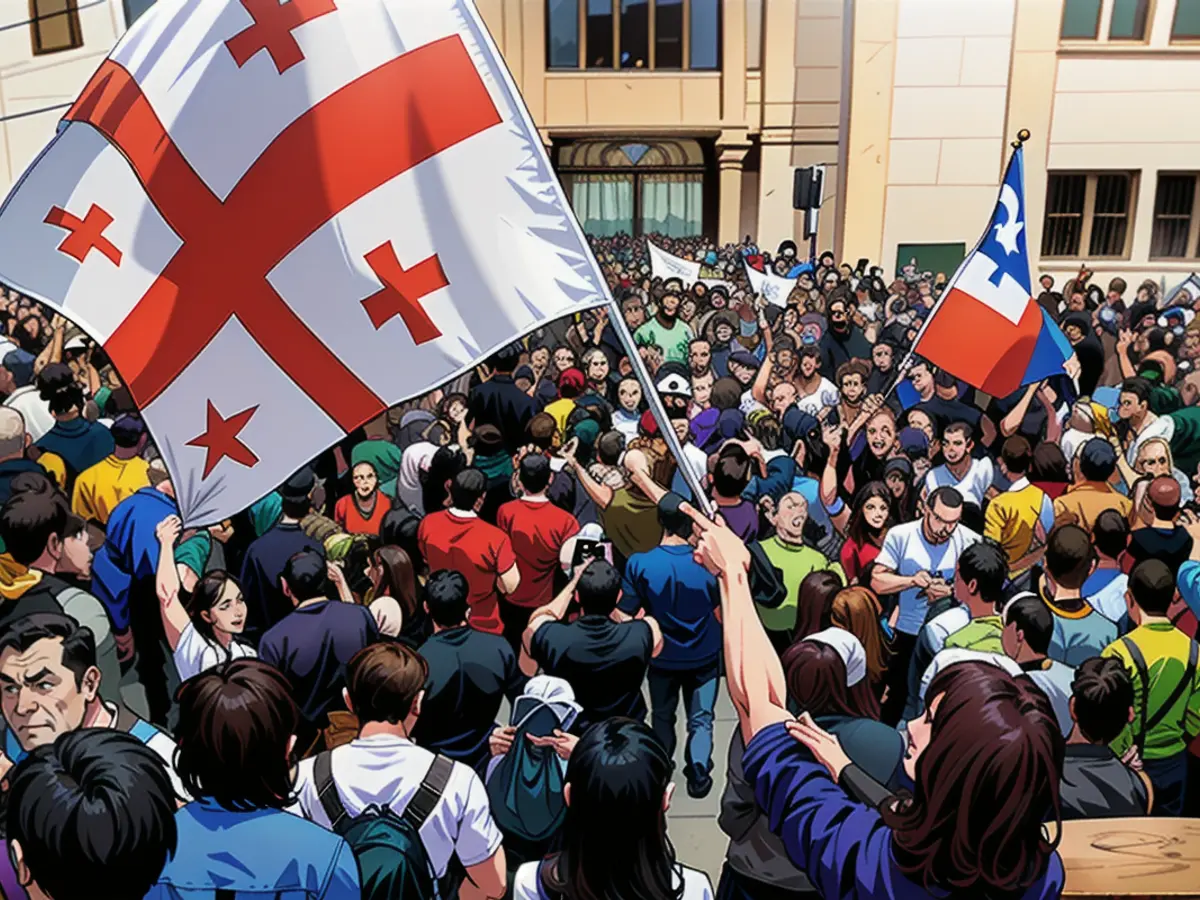Override of the veto - Georgia's Law on Civil Society Control Now in Effect
In spite of continuous mass protests, the Georgian parliament ultimately passed a law for stricter management of civil society. With 84 out of the 150 deputies endorsing the legal decision, the EU and the US expressed disapproval. The president, known for his pro-European stance, also opposed the law but couldn't stop it with his veto since a mere majority was enough to countermand it.
The Georgian Dream, the majority ruling party, will now enforce stricter accountability on non-governmental organizations that receive more than 20% of their funds from abroad. Rather than being a step backwards, they claim it to be an effort to boost transparency. Once again, parliament was in the headlines due to tense debates. The opposition member Anna Zitlidze accused the government of following pointless politics, which delays Georgia's EU integrating journey and creates several troubles for the nation.
However, Parliament Speaker Shalva Papuashvili shifted the blame towards opposition MPs, saying these parliament members were not considering their country's best interest but rather those of other nations. Such actions, in his view, equated to "outright treason."
New protests
Hundreds of people gathered yet again outside the parliament, venting their frustration with the passed law. The authorities deployed a heavily guarded police force. The protesters verbally assaulted Georgian Dream representatives, calling them "slaves," "traitors," and "Russians."
This law - hailed as the "Russian law" by the protesters - is viewed as an attempt to silence organizations that criticize the governance. These people draw similarities between this regulation and a law passed in Russia that has been used to muffle the opposition and curb independent media for years now.
Thousands of citizens have gathered in Tbilisi for several weeks in a series of peaceful demonstrations. Plans for another large rally in the evening have been announced. Many of the protesters worry the authoritarian behavior exhibited by Georgian Dream could potentially hamper Georgia's bid to join the EU.
Regional bloc representatives have urged the government to reverse this law. The Council of Europe shared concerns as well, noting that in its current version, it contains significant problems. These issues have the potential to hinder freedom of expression, assembly, privacy, and organizing social activities.
The United States has communicated a possible detrimental impact; visas will be restricted for individuals who attempt to curb democracy in Georgia or act as key players in this scheme, along with their family members. Moreover, this bilateral interaction between the US and Georgia may face obstacles.
In contrast, Georgia's government appears unfazed. The sanctions are perceived as invasive and believed to be counterproductive. Additionally - much to the delight of Russia - Moscow voiced its support and proclaimed it standard practice to shield oneself from outside influences.
Georgia occupies an important world politic borderland, abutting Russia. A sizeable part of its population aspires to detach from Russia. The EU and NATO membership ambitions are enshrined in the constitution, becoming a reality since December as Georgia earned the title of an EU candidate. Meanwhile, Russian forces control the southern Georgian regions of South Ossetia and Abkhazia, both of which Moscow views as independent states.
Read also:
- Year of climate records: extreme is the new normal
- Precautionary arrests show Islamist terror threat
- UN vote urges Israel to ceasefire
- SPD rules out budget resolution before the end of the year
- Despite the ongoing mass protests, the Georgian Parliament approved a law aimed at tighter regulation of civil society, leading to criticism from the EU and the USA.
- The EU and US expressed disapproval of the law, but President Salome Zurabishvili, known for her pro-European stance, could not stop it with her veto due to the majority needed to override it.
- With 84 out of 150 deputies endorsing the law, the Georgian Dream, the ruling majority party, will now enforce stricter accountability on non-governmental organizations receiving more than 20% of their funds from abroad.
- The opposition accused the government of following pointless politics and delaying Georgia's EU integration journey, while Parliament Speaker Shalva Papuashvili blamed opposition MPs for not considering their country's best interest.
- Hundreds of people gathered outside the parliament, expressing frustration with the passed law and calling Georgian Dream representatives "slaves," "traitors," and "Russians."
- Thousands of citizens have gathered in Tbilisi for several weeks in a series of peaceful demonstrations, voicing concern that the restrictive law could hamper Georgia's bid to join the EU and potentially lead to authoritarian behavior.
- The Council of Europe and the United States have raised concerns about the law, with the US threatening visa restrictions and potential obstacles in bilateral relations with Georgia, while Russia expressed support for the law as a means of self-protection against outside influences.
Source: www.stern.de








